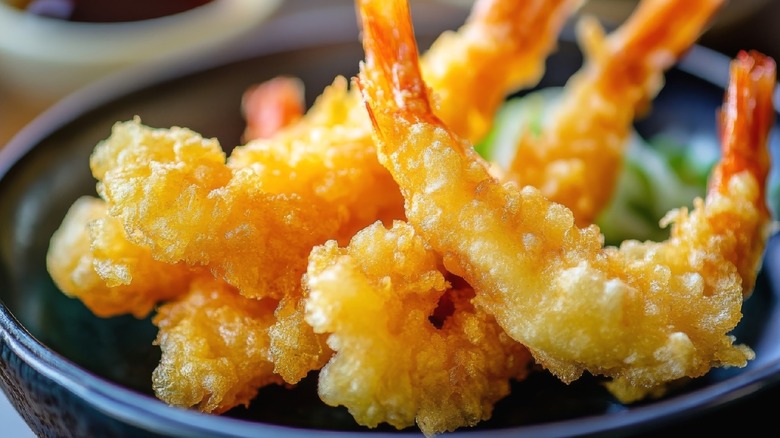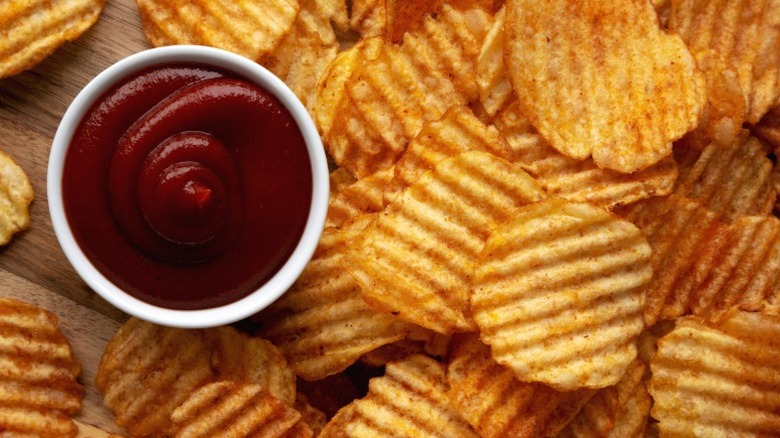Crispy And Crunchy Are The Same Thing, Right? Actually, There's A Big Difference
The English language is filled with words whose definitions have drifted due to the imprecise way they are used. Consider "nonplussed," a synonym for "confused," which has now come to mean "unbothered" because it kind of sounds like "nonchalant." Or consider "crispy" and "crunchy," two words that are frequently used interchangeably despite describing two distinctly different textures: the former refers to something flaky and delicate, the latter refers to something bold and brawny.
But anyway, let's start with "crispy." If something is crispy, it's pleasantly thin and brittle, something that fractures and flakes when you bite into it. Consider how Rice Krispies feel when you munch on a spoonful or the way a flaky tempura coating shatters like a delicious decorative eggshell against your teeth. (Be sure to use taihaku oil for frying tempura.) It's a light and fun eating experience that gives you the rewards of something heavier without putting you through a full-on jaw workout.
Crunchy is heavier than crispy
If crispy is Mozart, crunchy is Wagner; if crispy is a pair of ballet slippers, crunchy is a pair of combat boots. This is, of course, not a value judgment, but a description of how much heavier a texture "crunchy" is compared to "crispy." When you bite into a thick pickle, for instance, or a particularly hardy kettle-cooked potato chip (such as Kettle, America's most beloved potato chip), you can feel it fight your teeth a little. Just a little, mind you — we don't want you to chip a molar — but enough to give you a pleasant eating experience and to produce that divine sound. (Krrrrnch! Ahh, the wonders of onomatopoeia.)
So, once more, as a reminder: Regular potato chips are crispy, while kettle-cooked chips are crunchy; Rice Krispies are crispy, while Corn Flakes are crunchy; Cheez Doodles are generally crispy, while Cheetos are (generally) crunchy. Are we splitting hairs? Probably — and it's quite possible that nobody cares about the exact definition of words as much as we do. But we like to think of ourselves as fighting a worthy losing battle; we've already ceded ground to people who use "irregardless" without a hint of shame; we can't afford to lose more.

